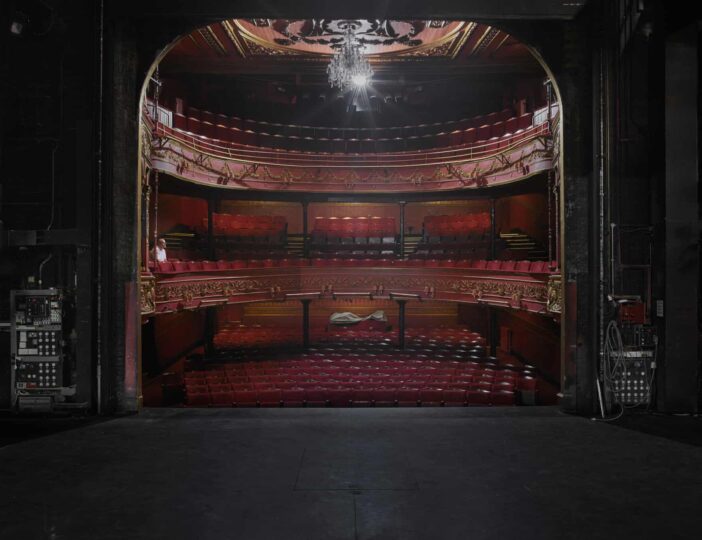- Posted on October 8th, 2020
#LifeBeyondCovid and Cultural Recovery

In June, we published A Just and Green Cultural Recovery, urging the government to commit not only to a fair recovery, but to include sustainability, biodiversity and social justice in the strategy for Cultural Renewal. In a statement of shared intent from UK culture calling for comprehensive action, over 800 leading cultural figures and organisations across the sector have since endorsed our letter.
These include the organisations and institutions below, as well as individuals from across the cultural sector – Nile Rodgers, the CEO of the MOBO’s, Kanya King CBE, Merck Mercuriadis, CEO of Hipgnosis Songs Fund, Neil Tennant, composer Jocelyn Pook, Gilles Peterson, Founder of Browneswood Recordings, musicians John Patrick-Flynn (Johnny Flynn), Drillminister, Beth Orton, Brian Eno and Jon Hopkins; artists Adam Chodzko, Ackroyd & Harvey and Steven Appleby; theatre directors Madani Younis and David Lan CBE; actors Sir Mark Rylance, Baroness Floella Benjamin DBE and Toby Jones; writers Benjamin Zephaniah and Robert Macfarlane, and many many more. View the full list of endorsements here.
A Just and Green Cultural Recovery
In our letter, we outlined the need for annual reporting on environmental impact to be a requirement of government grants and subsidies under the cultural renewal plan. Our ground-breaking programme with Arts Council England is an example of this model, the first of its kind anywhere in the world. To date, the programme has delivered savings of £16.5 million and reduced emissions by 23% across Arts Council England’s national portfolio.
As a response to a moment of national emergency, this letter was addressed to the Cultural Secretaries. However, it also calls for a broad-reaching, cohesive governmental programme through the creation of a dedicated green economy committee. Their remit would be to drive recovery, whilst preparing for a post-carbon world.
Our demand has been covered in national media and heard across government. Among them, The Guardian coverage of the letter cites Frances Morris, director of Tate Modern, saying:
“Government commitment to a long-lasting and inclusive green recovery programme is a crucial and urgently required step to creating a future in which we cannot just survive but thrive.”
House of Lords’ investigation into #LifeBeyondCOVID
Following this appeal, we were encouraged to prepare a response to the House of Lords’ investigation into #LifeBeyondCOVID with input from across the cultural sector. We asked you to share written, video, photo or audio submissions in answer to what you feel the long term implications of COVID-19 are on issues of social cohesion, inequality, our environment, and arts and culture.
We were glad to see people elaborating on their decision to endorse the Just and Green Cultural Recovery, and urging the UK government to keep to the deal agreed on at COP21 at Paris in 2015. They were concerned about the lack of consideration of the environment and climate change in government responses to the pandemic. In addition, they called for a fundamental shift in our approach to valuing nature.
Here are some excerpts.
There was a moment when it felt like the birdsong could be heard and the voices calling for a green recovery were amplified, but with every government bailout that doesn’t come with environmental mitigation conditions attached, we move further away from the possibility of living sustainable and prosperous lives. – Sarah Bird, Director of Wild Rumpus
The responses we received also stressed the need for a cultural recovery that addresses social inequalities within the arts sector and across society.
One of the impacts of Coronavirus is the light it has shone on the deep-rooted injustices and inequities within the arts sector, and society more broadly, across the UK. Black people and people of colour, who are already oppressed within our systemically racist society, are disproportionately affected by Coronavirus, climate catastrophe and social inequality. – The Live Art Development Agency (LADA)
Featured image: Graeme Bright, building and facilities manager, custodian of the Theatre Royal Stratford East. Part of Custodians for Covid by Joanna Vestey, which features the the caretakers of 20 closed London theatres. Through sales of limited edition prints, the project aims to raise funds for the pandemic-threatened arts institutions.

